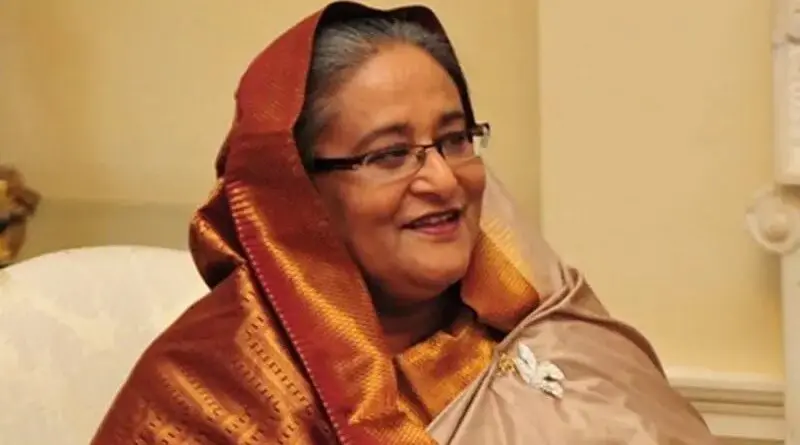Political Turmoil And Human Rights Concerns: Examining PM Hasina’s Rule In Bangladesh – OpEd
By Asad Ali
Bangladesh, a pivotal state in South Asia, has been under the leadership of Prime Minister Sheikh Hasina since January 2009. As the head of the Awami League party, Hasina’s tenure has witnessed political tensions, conflicts with opposition parties, and periods of turmoil. This article explores the political landscape in Bangladesh, focusing on the actions of the Hasina government, the role of international organizations in advocating for human rights, and the challenges faced by liberal voices within the country.
The political dynamics in Bangladesh have been marked by rivalry and disagreements between the Awami League led by Sheikh Hasina and the Bangladesh National Party (BNP) led by former Prime Minister Khalida Zia. This rivalry has led to arrests, protests, and legal actions against opposition leaders. As the country approaches the general elections scheduled for January 2024, concerns arise about potential manipulation and rigging by the incumbent government. In response, the United States has declared its intention to impose visa restrictions on those involved in election manipulation.
International human rights organizations, including Amnesty International and Human Rights Watch, have raised alarms about political victimization in Bangladesh under the Hasina government. These organizations, known for monitoring and reporting on human rights globally, emphasize the importance of respecting constitutions and ensuring fundamental rights. Even within Dhaka, liberal quarters have criticized Hasina’s policies, reflecting a broad spectrum of concern about the state of human rights in the country.
Amnesty International and Human Rights Watch, along with media outlets, scrutinize the actions of political leaders worldwide. In the case of Bangladesh, their critiques are based on factual observations and ground realities. The last few years have seen an intensified crackdown by the Hasina government against opposition parties, particularly the BNP and Jamat e Islami. Allegations of trumped-up charges, sham trials, and suppression of dissident voices across various professions have raised international eyebrows.
The Digital Security Act (DSA) of 2018, aimed at addressing cybercrimes and regulating online activities, has faced criticism for being misused to suppress freedom of expression. While the DSA targets the spread of harmful online material, concerns have been raised about its misuse to stifle dissent and target individuals critical of the government. Human rights organizations, media watchdogs, and international bodies advocate for a review and amendment of these laws to align them with international human rights standards and ensure proper implementation.
To further its crackdown against opposition and suppress liberal voices, the Hasina government has utilized the Rapid Action Battalion (RAB), an elite anti-crime and counterterrorism force. Initially established in 2004 to combat organized crime and terrorism, RAB’s role has evolved, and it has been accused of being politicized and used against opposition figures. Concerns about excessive use of force, extrajudicial killings, enforced disappearances, and alleged torture have prompted calls for thorough investigations by human rights organizations and activists.
In the face of these challenges, human rights watchdogs and international media play a crucial role in exerting pressure on the Hasina government. Advocating for thorough investigations into alleged human rights abuses by entities like RAB, international organizations emphasize the importance of upholding human rights, ensuring accountability, and maintaining transparency. According to international law, any allegations of misuse of power and human rights abuses should be investigated thoroughly and addressed according to the rule of law.
The political landscape in Bangladesh under Sheikh Hasina’s leadership has been marked by tensions, conflicts, and concerns about the state of human rights. International organizations, media outlets, and liberal voices within the country have been vocal in their criticism of the government’s actions, particularly in the lead-up to the upcoming general elections. As Bangladesh navigates its political future, the international community’s attention remains focused on advocating for the protection of fundamental rights, transparency in governance, and adherence to the rule of law.

